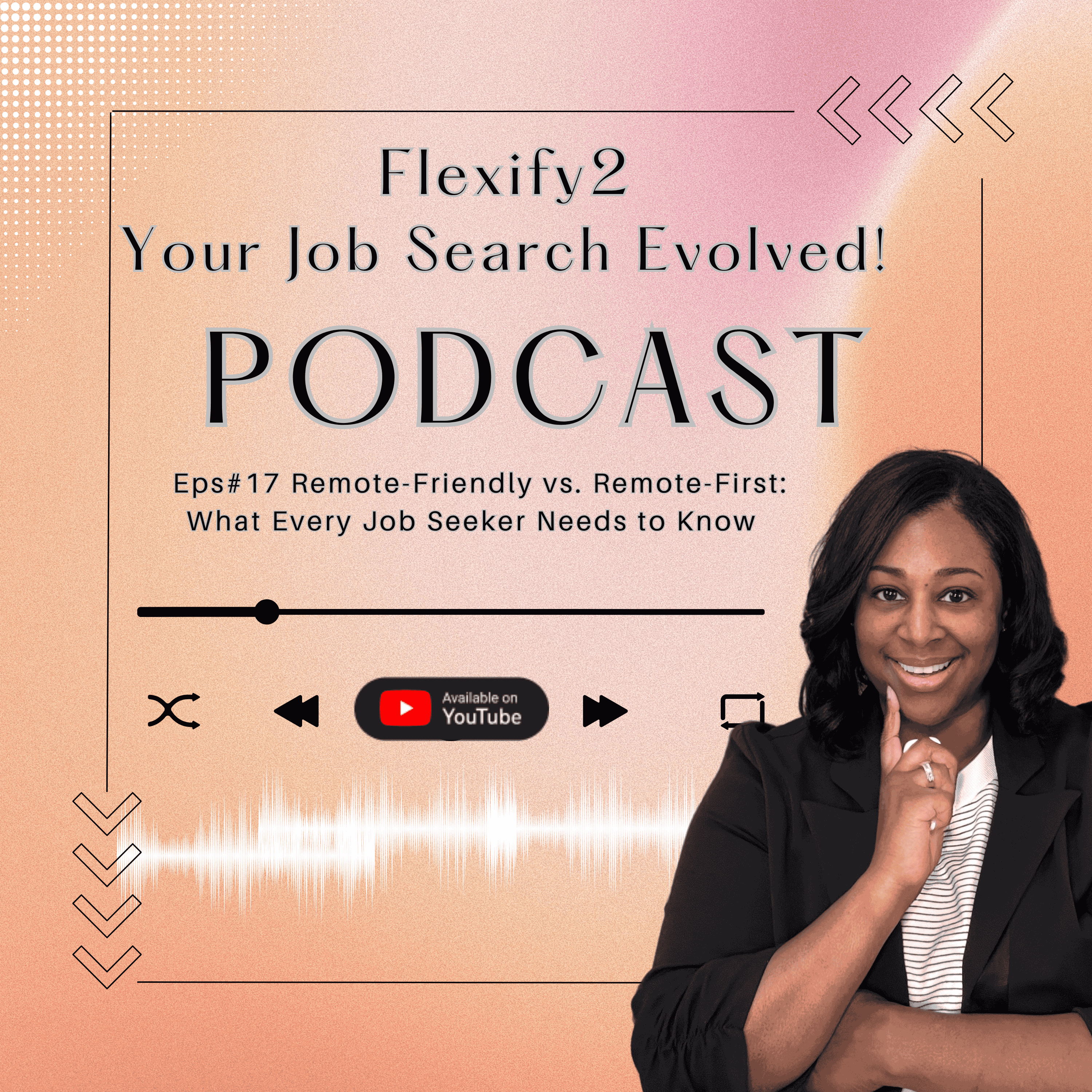Remote-Friendly vs. Remote-First: What Every Job Seeker Needs to Know!
- Author
- T. Smith
- Published
- Fri 13 Jun 2025
- Episode Link
- https://rss.com/podcasts/the-2025-economy-job-market-your-january-outlook/2071496
Key Insight
Not all remote jobs are equal. The company type determines your career success and work experience.
Remote-Friendly Companies (The Trap)
What they are: Office-based companies allowing some remote work. Office remains central, remote workers are secondary.
How they operate:
- Leadership works from office daily
- Real decisions happen in-person (break rooms, hallways)
- Remote workers miss informal conversations and networking
The problem: Career invisibility. You get flexibility but sacrifice advancement opportunities.
Reality check:
- Fight for visibility daily
- Overcompensate with 24/7 availability
- Higher burnout from proving worth
Remote-First Companies (The Advantage)
What they are: Built for distributed teams. No central office, leadership works from anywhere.
How they operate:
- All communication documented and accessible
- Decisions made in shared spaces (Notion, Confluence)
- Meeting recordings standard
- Virtual team building
The benefit: Level playing field. Work quality matters, not physical presence.
Reality check:
- Promotion based on results
- Equal access to information
- Better mental health
How to Identify During Job Search
Job Posting Language
Remote-Friendly: "Remote option," "work from home possible" Remote-First: "Distributed team," "remote-first culture," "location-independent"
Website Clues
Remote-Friendly: Showcases office spaces, emphasizes in-person culture Remote-First: Discusses async communication, digital tools, cross-timezone culture
Leadership Location
Remote-Friendly: Executives in same city as HQ Remote-First: Leadership distributed globally
Interview Questions
- "How does your team handle project planning?"
- "Where is leadership based?"
- "How do typical meetings work?"
- "How do remote employees get promoted?"
Red Flags
- Some people dial in while others meet in conference room
- Hesitation about remote promotion paths
- Preference for candidates near office
Green Flags
- Everyone joins calls individually
- Clear performance-based advancement
- Global hiring practices
Action Plan
- Search Strategy: Look for "remote-first" companies, not just "remote jobs"
- Research: Check blogs, Glassdoor reviews for remote culture mentions
- Interview Prep: Ask HOW they make remote work successful
- Trust Instincts: If you're the only remote person in interviews, that's telling
Why It Matters
Career Impact: Remote-friendly = constant visibility battles vs Remote-first = merit-based advancement
Mental Health: Remote-friendly = anxiety about missing out vs Remote-first = normalized remote work
Choose companies designed for your work style, not those that merely tolerate it.
